I wouldn’t necessarily consider myself much of a strategist. I’ve played and enjoyed some RTS games throughout the years, but I’ve never ventured into the Grand Strategy (or 4X) genre. That is until I had the chance to review Ara: History Untold and well, R.I.P my backlog.
Baby Steps
I started my first game of Ara, having no real clue of what I was getting myself into. Selecting my leader of choice (Nefertiti fyi, because Egypt is cool), I jumped in on the normal difficulty and crossed my fingers for a good tutorial.
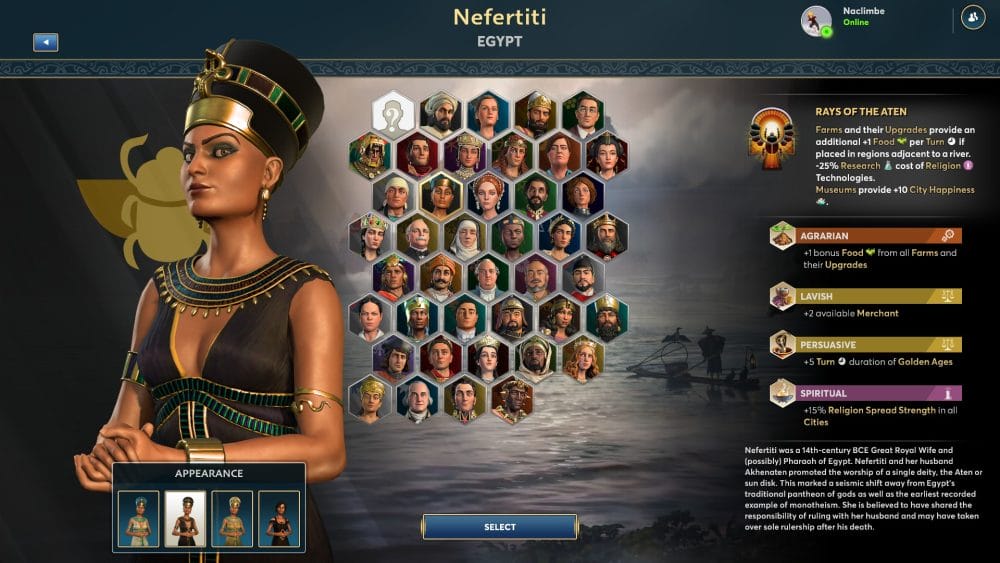
I’m happy to report that the tutorial is very good and I was up and running in no time. You start with on small settlement and a scout – who you can handily set up to auto scout, and you’re prompted to start some research and give your city a project. The game world is gorgeous, and unlike traditional hex based systems in games like Civilisation each area follows the geography of the land. I spent a lot of time zooming in to see what my citizens were up to.
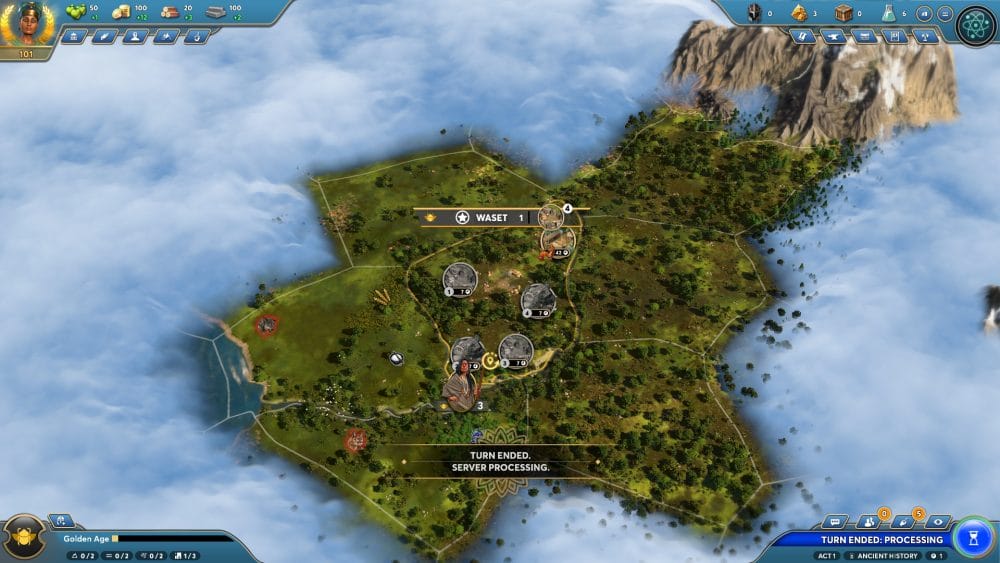
The tutorial takes you through the basics of the game well, highlighting suggested actions but also popping tooltips about your actions if you decide to go off on a tangent, and you can switch it off whenever. For me this was about 1 hour in when I felt I had met a few other nations and had a nice little city going.
I also found the UI to be nice and clear, you can tab between your cities in order to upgrade your dwellings, farms and mines. You can check on you allies/enemies in one tab, goals in another and even your Craft Workshops to easily check what you’re manufacturing in another. I will say it can be a little overwhelming and the fact you can’t change what you’re manufacturing from this menu, and just the fact you need to manually click out of menus can be a little frustrating.
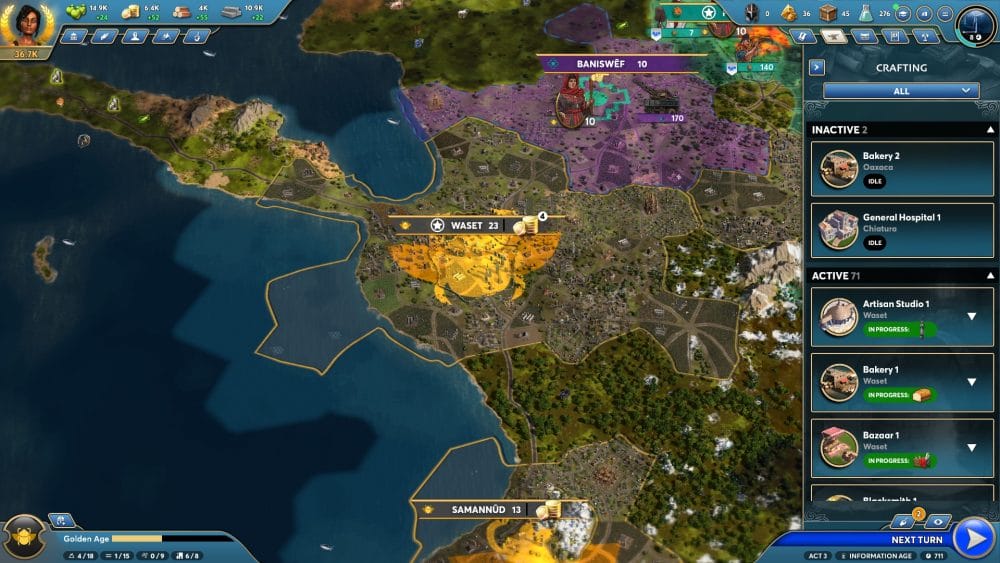
Prestigious
The key to winning a session of Ara: History Untold, is gaining Prestige. You can gain Prestige in various ways like; completing and displaying Masterpieces, trading with out nations, spreading your religion and completing Act goals. One of the best ways is to build Triumphs – famous buildings and landmarks from throughout all of human history. These aren’t limited to any nation either – so having fun building the London Eye next to the Great Pyramid of Giza.
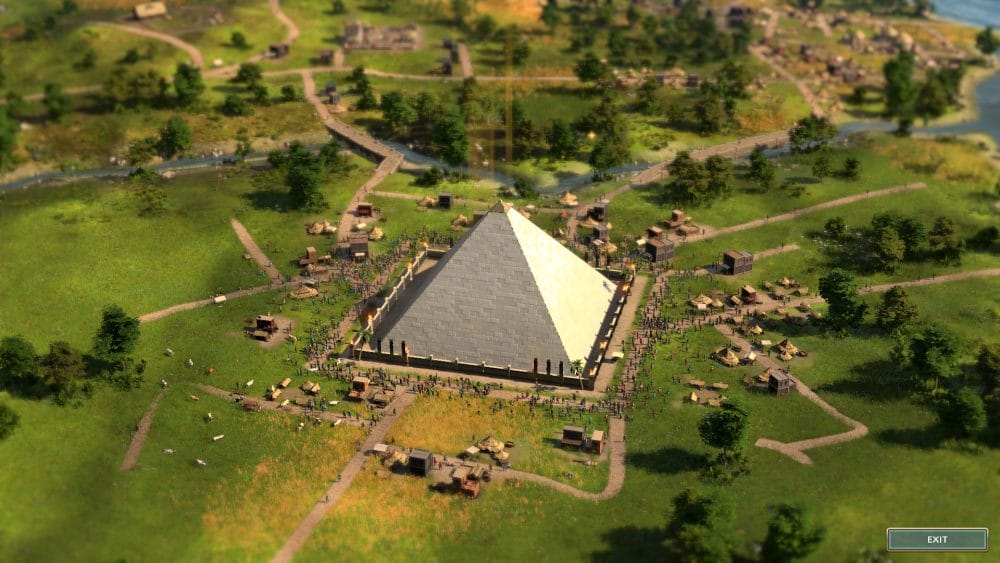
The game encourages players to explore various cultural and historical aspects, promoting a sense of discovery and appreciation for the past. There’s no real tech tree, you unlock things through research – but if you choose to skip so to advance, there may be a chance to unlock the same technology in another way later. You also get Paragons that alongside crafting Masterpieces give you various bonuses based on their roles.
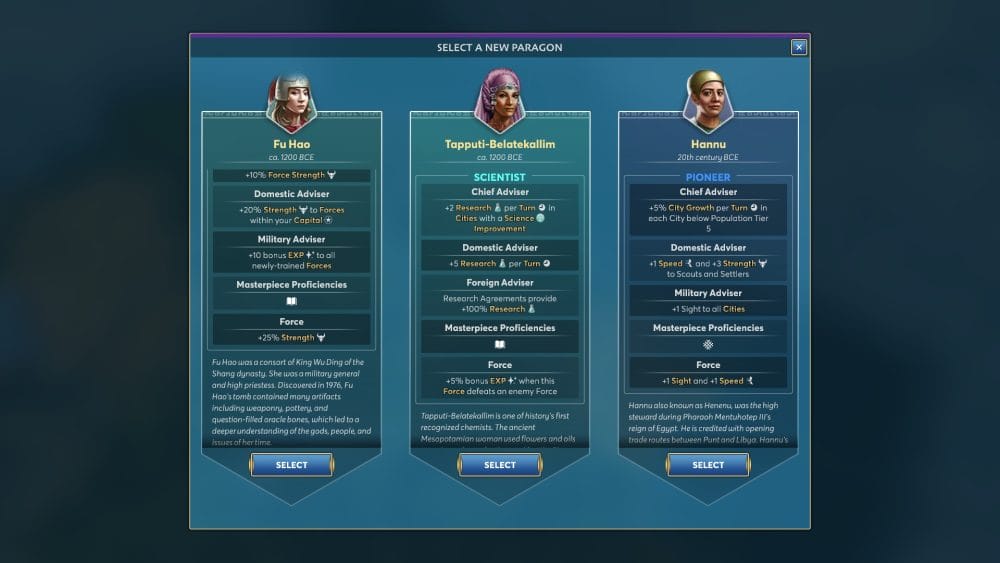
You need to be the nation with the highest Prestige to not just win the game, to advance to the next Act. The game has an interesting ranking system, and if you (or another Nation) triggers the next significant era in human history, you’ll need to make sure you have enough Prestige to not be forgotten to history. Luckily my stumbling around figuring things out led to quite a lot of early game Prestige and I appreciate the fact that the game may have saved me 6 hours of a session that might end up unwinnable. Although there was one game were I made it all the way to the end, but I felt there really was no way to win.
Time Marches On
I’m sure if you’ve played a lot of games in this genre, then you didn’t flinch at a single game lasting 6 hours. But as I said before this is the first time I’ve played a game like this, so I wasn’t fully expecting it. What I can assure you if you’re new to the genre like me, is that it certainly didn’t seem like 6 hours and I thoroughly enjoyed every second of it.
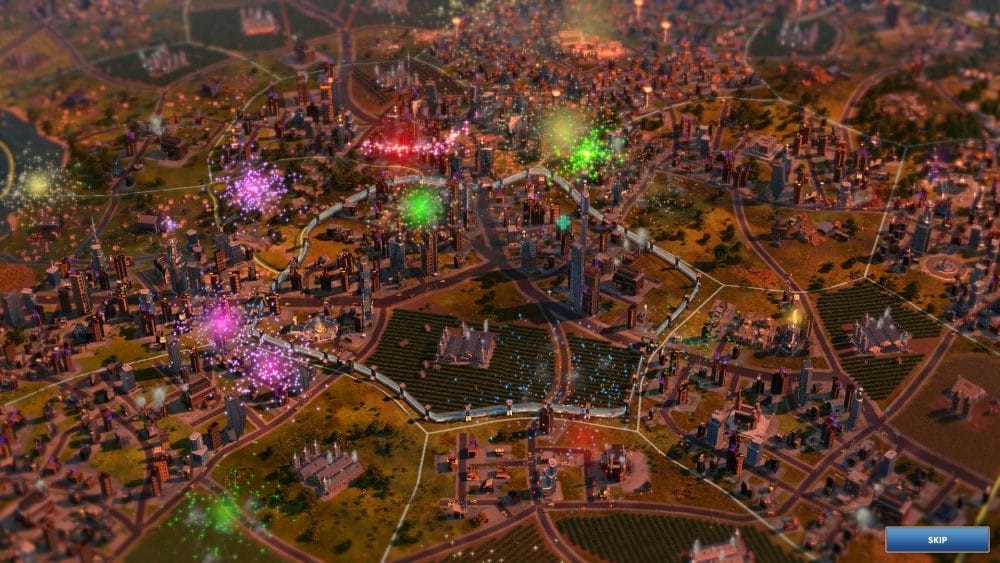
Something else that differs from some other Grand Strategy games is the simultaneous turn resolution, which means you always have to be on the front foot when trying to out develop the A.I. Because you’re always trying to maintain your resources, balance quality of life in your cities and work towards you next Triumph, it’s easy to forgot the rest of the players are doing the same thing at the same time and then be totally blindsided by someone declaring war on you. I’m looking at you Charlemagne.
It also adds a dynamic layer to multiplayer sessions where predicting your opponent’s moves becomes crucial. It’s a game of foresight and planning, where every decision could lead to triumph or defeat.
The Hundred Age War
I played mostly as a pacifist across my sessions, but sometimes (as above) war comes to your door and you don’t have enough candles to propose a peace treaty.
There’s a quote from George Washington (another leader in this game!) “To be prepared for war is one of the most effective means of preserving peace.”, and thankfully if you’ve been optimising you crafting to make a lot of resources, you’ll be more than ready to train up some troops to deal with wandering bandits or the aforementioned Charlemagne.
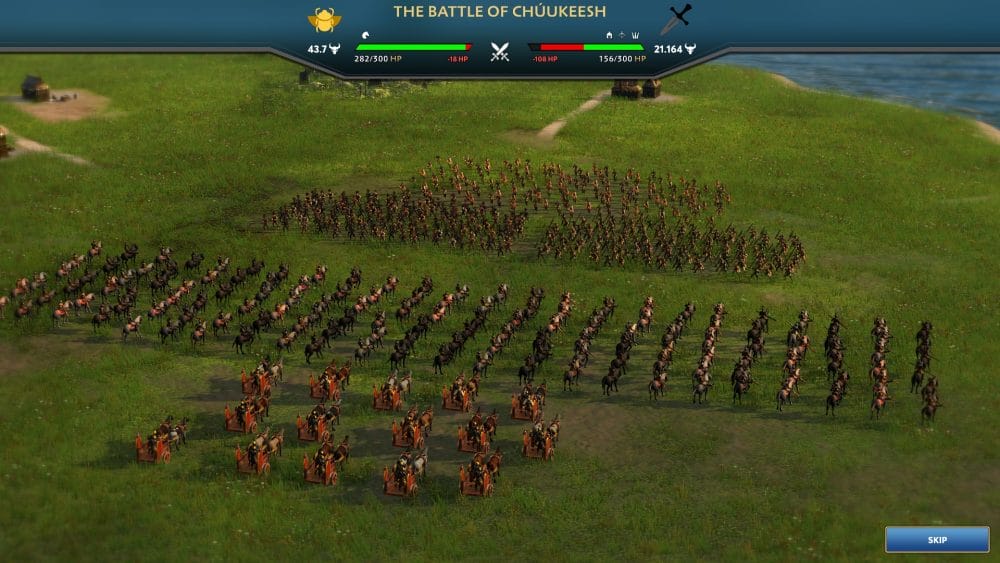
There are 4 different types of war in Ara: History Untold, and one is only available to certain leaders with particularly war hungry traits. You also lose Prestige for starting a war, but gain it from winning, so there’s a balance to be had in choosing whether or not to try and appease your neighbours as best you can. I found a lot more value in Alliances and the associated benefits, but rest assured if military tactics are more your thing, then you can research all the way into different battle formations and raze the other nations to the ground.
Building up specific formations was actually very fun, and on the one occasion I did actually start a War of Retaliation against The Holy Roman Empire, I managed to successfully build a siege battalion and completely over take one of their cities. Take that. The battle animations are also wonderful to watch.
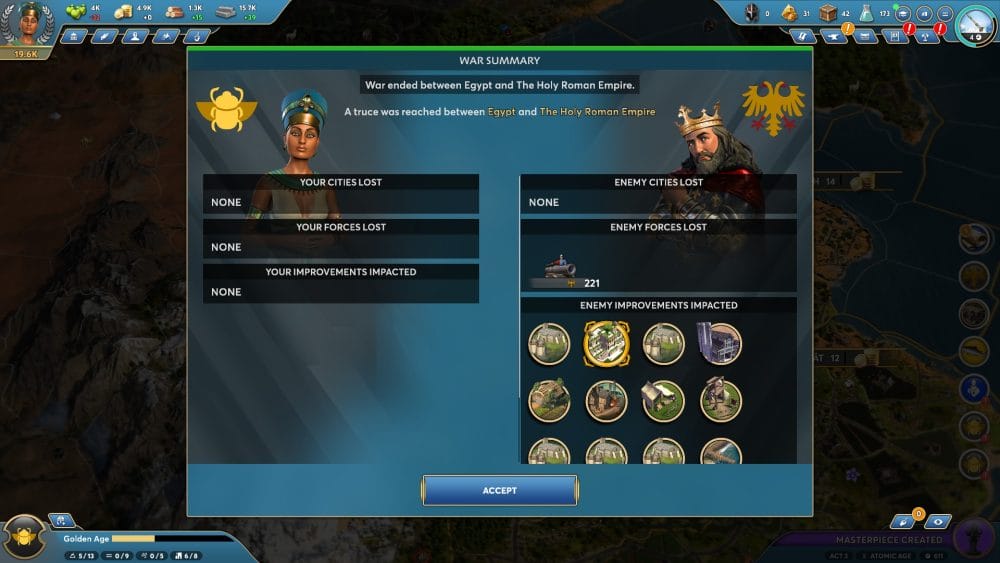
Conclusion
Going into all of the mechanics and intricacies of Ara: History Untold would take this out of the realm of review and more into a game guide which I definitely don’t have the skill level to write.
What I will say is Ara: History Untold is absolutely gorgeous, the ambient sounds and music and event dialogue is wonderful. The focus on building and developing your nation rather than combat, alongside it’s great tutorial makes it feel very accessible to newcomers, while also being a lot fun for fans of the genre. Yes some of the menus could be clearer, and an easy way to find where you’ve put a specific building via search after you’ve built it for when the map gets busy would be a great feature. But these are small niggles on a game so good that I forgot I had booked a cinema ticket and completely missed the movie.

Ara: History Untold was reviewed on PC via Steam, a huge thank you to Xbox for providing the code. The game releases on the 24th of September on PC, and is included with PC Game Pass.




